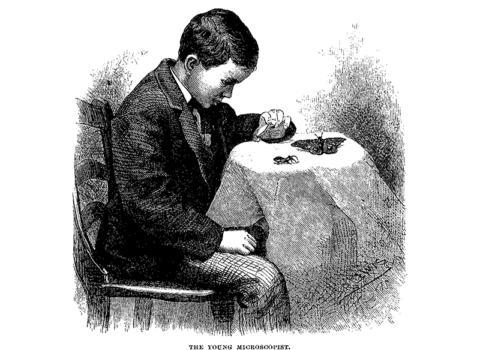As a frequenter of New York’s literary and journalism galas, I’ve become hardened to the realities of fund-raising: Good causes need money and there’s no such thing as a completely altruistic donation. Sometimes you have to swallow your distaste for the dinner chairman, the chief honoree, and the keynote speaker — either one or all of them — and keep your knife and fork aimed at the rubber chicken.
But during this banquet season just ending my tolerance of nonsense has been seriously challenged. It began in early November at the New York Public Library’s Library Lions dinner, where guests were greeted by protesters on the steps to the library’s main building, on 42nd Street, in Midtown Manhattan. The demonstrators were objecting to a “renovation” plan (which happily has since been scrapped) that would have involved transferring more than a million books to remote sites, selling the heavily used Mid-Manhattan branch across the street and moving its books into the beautiful old Central Library, whose stacks were to be replaced by a new “public space” designed by the awful modernist architect Norman Foster.
It sounded like planned shrinkage to me and my wife, not to mention unsavory real-estate shenanigans by library-board chairman Anthony Marx. But though we were tempted to go home, we didn’t want to offend our very nice table host and went through with the dinner.
Significantly, the principal honoree was Mayor Michael Bloomberg, a billionaire and not an author, who had made big donations to the library. But I wasn’t so troubled by that until one of the speakers made a condescending joke about the demonstrators outside. Coupled with Marx’s banal, unbookish speech, I was left with a bad feeling about the evening.
Next up, in late November, was the Committee to Protect Journalists International Press Freedom Awards dinner, at which four worthy foreign journalists were honored along with Paul Steiger, the former managing editor of the Wall Street Journal and founder of the excellent ProPublica news organization. As it happens, I resigned from the board of CPJ in 2003 to protest the selection of that year’s dinner chairman, Merrill Lynch CEO Stan O’Neal, because I thought the scandal surrounding the company’s dishonest hyping of new stock issues underwritten by Merrill might bring discredit to CPJ. Nevertheless, I wasn’t too pure to buy a ticket and attend the soiree, and I haven’t missed one since.
This year, however, it didn’t occur to me to read the line-up card before I started eating my salad. Suddenly I heard the booming voice of Dan Doctoroff, CEO of Bloomberg News and the dinner’s chairman, denouncing government censorship of reporters around the world.
“Wait a minute,” I said to my tablemates. Hadn’t Bloomberg L.P., owned by Literary Lion Michael Bloomberg, just “suspended” a reporter over his investigation of the financial relationship between China’s richest man and the country’s Communist Party leadership? Yes, whispered the woman to my right.
This was too much. So for the first time in my banqueting career, I got up and left.
However, the worst was yet to come. Last week, I attended the PEN Literary Gala, as I have for many years, both as a member of the writers group and as a campaigner for freedom of expression. I first worked with PEN in 1989 when I initiated and helped organize a reading and rally to defend Salman Rushdie against the Ayatollah Khomeini’s fatwa. Rushdie, also a former president of PEN American Center, was the evening’s main honoree, so all seemed correct and normal.
Unfortunately, I wasn’t paying attention to the program, having spent the cocktail hour drinking and chattering with friends and acquaintances from my beleaguered world of publishing. (How’s business? Come on, you know it’s bad.) So, once again, I found myself dismayed — this time by the presentation of PEN’s new Digital Freedom Award.
The “digital publishing model” seems to me to be destroying publishing, as well as the careers of all but the top earners among publishers, authors, and journalists — the 1 percent, as it were, who can still afford to buy tickets to the PEN Gala. And yet here was Dick Costolo, the CEO of Twitter, picking up a “freedom” award.
Needless to say, Costolo’s speech ran a lot longer than 140 characters, but what bothered me was not the length or the self-congratulation, but its weird aftermath. When the time came to honor Ilham Tohti, an economics professor who has been jailed by Chinese authorities for running a website promoting rights for his ethnic group, the dinner guests were asked to tweet their protests to the Chinese government. Instead of signing actual postcards with their full names, at least 100 intellectuals, out of 637 people present, vented their displeasure through a disembodied, manifestly anti-intellectual medium that impoverishes language and writing.
I was relieved when two liberated members of Pussy Riot made a surprise appearance on the dais. At least they still understand the value of putting their physical selves on the line.



